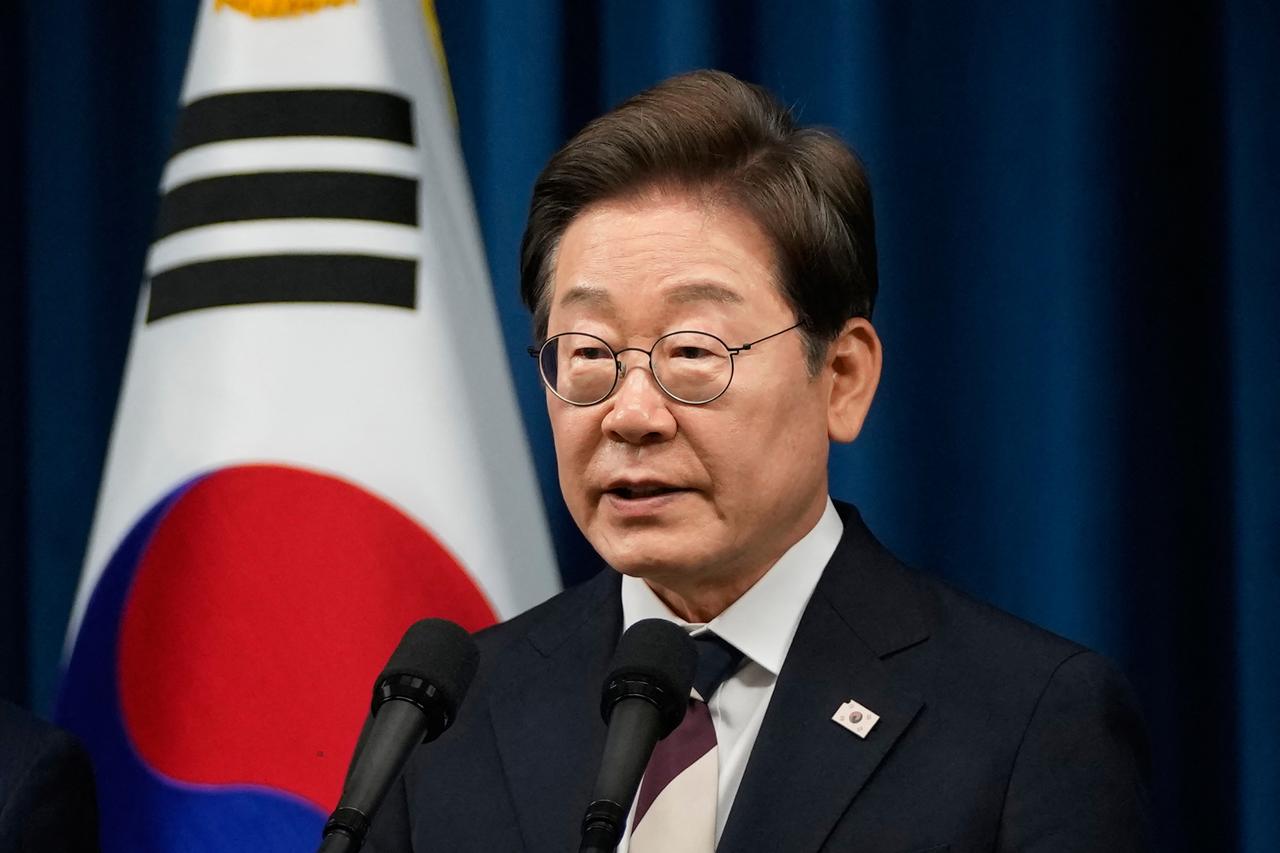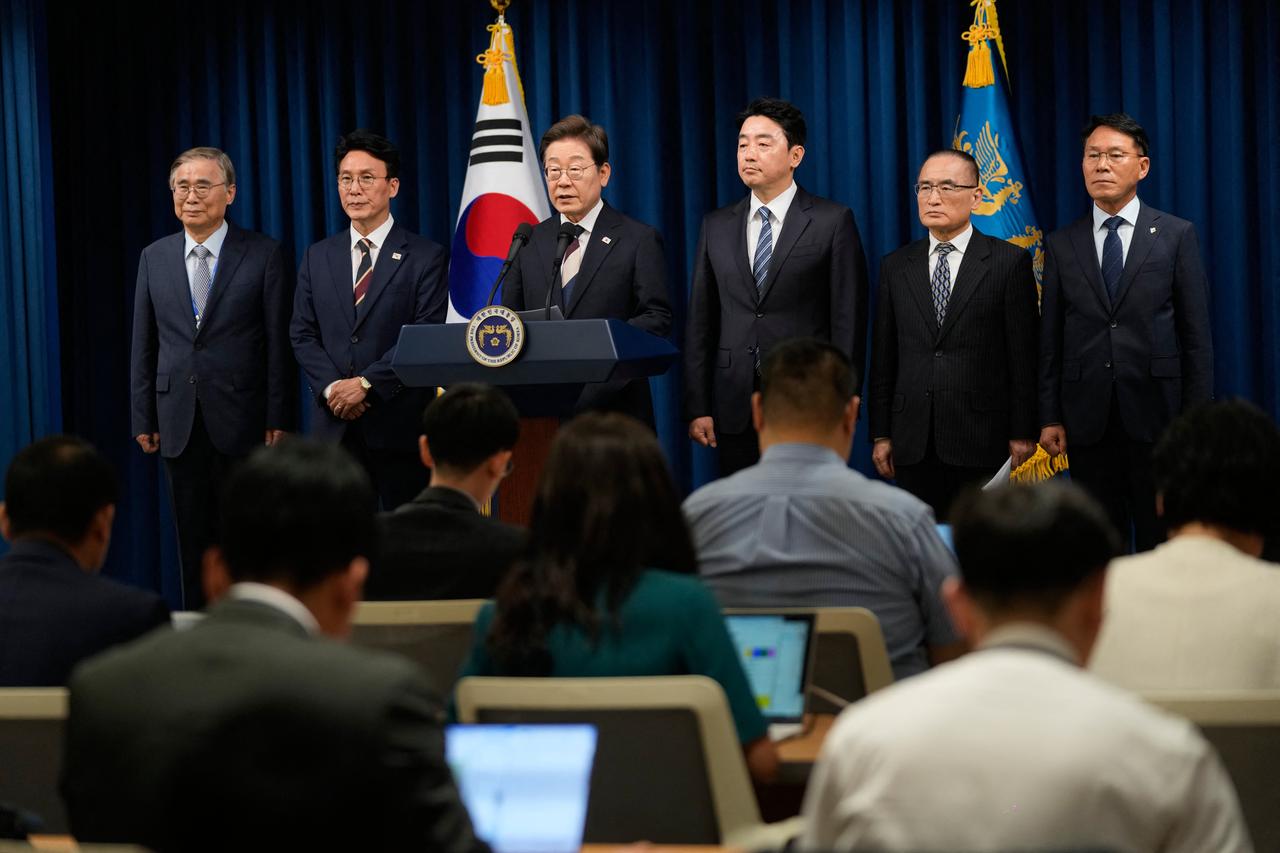
Lee Jae-myung was inaugurated as South Korea's 14th president Wednesday, taking office immediately after securing a decisive victory in snap elections triggered by his predecessor's failed martial law attempt.
The former opposition Democratic Party leader was sworn in during a ceremony at the National Assembly in Seoul, formally beginning his five-year term after the National Election Commission confirmed his victory earlier in the day, according to Yonhap News Agency.
Lee captured 49.4% of the vote, receiving more than 17 million ballots and defeating conservative candidate Kim Moon-soo of the People Power Party, who garnered 41.2%. The election saw South Korea's highest voter turnout in 28 years at 79.4%.
The snap election was called following the impeachment of former President Yoon Suk Yeol, who attempted to impose martial law in December before quickly reversing course amid widespread opposition.

Within hours of taking office, Lee made his first major personnel decisions, appointing top campaign aide Kim Min-seok as prime minister. He also named former Unification Minister Lee Jong-seok to head the National Intelligence Service, diplomat Wi Sung-lac as national security adviser, and three-term lawmaker Kang Hoon-sik as chief of staff.
Unlike traditional presidential transitions, Lee assumed office immediately after the vote certification, bypassing the customary 60-day handover period. He becomes the first Democratic Party president to begin his term with a friendly legislature already in place.
In his inauguration address, Lee outlined his administration's focus on economic development, regional peace, and engagement with North Korea. "Creating new engines of growth and sharing both the opportunities and outcomes of that growth through fair development will open the door to a better world," he said, according to the Korea JoongAng Daily.
The 61-year-old former human rights lawyer signaled a significant shift from his predecessor's hardline approach toward North Korea, pledging to maintain open communication channels while deterring provocations.
"We will heal the wounds of division and war and establish a future of peace and prosperity," Lee said. "No matter how costly, peace is better than war."
He emphasized that his government would "deter North Korean nuclear and military provocations while opening communication channels and pursuing dialogue and cooperation to build peace on the Korean Peninsula."
Lee takes office facing immediate economic pressures, including new U.S. tariffs of 50% on South Korea's steel and aluminum exports set to take effect. He warned that "rising protectionism and supply chain restructuring" pose existential threats to Asia's fourth-largest economy.
Markets responded positively to the election results, with the benchmark KOSPI index and the South Korean won both rising Wednesday.
U.S. Secretary of State Marco Rubio quickly congratulated Lee and emphasized the "ironclad" nature of the Washington-Seoul alliance, citing "shared values and deep economic ties." President Donald Trump was expected to be among the first world leaders to call the new South Korean president.
Hong Min, a senior analyst at the Korea Institute for National Unification, described Lee's comments on North Korea as a "significant departure" from Yoon's approach, noting that Lee did not immediately attach preconditions to potential dialogue with Pyongyang.
The modest inauguration ceremony, attended by only a few hundred guests, stood in stark contrast to the large outdoor events typically held after regularly scheduled elections. The ceremony's location at the National Assembly carried symbolic weight, as it was the same building where Yoon had deployed armed troops during his brief martial law declaration.